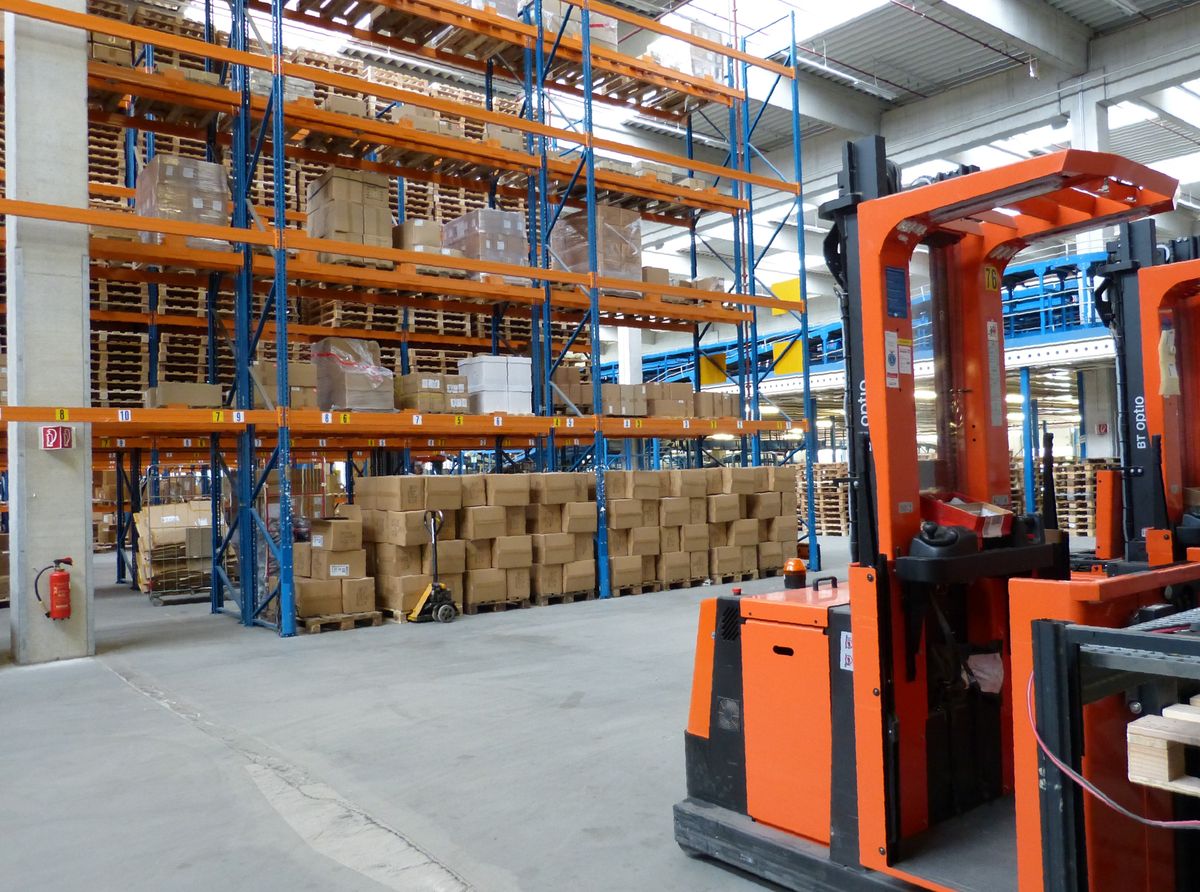The integration of Artificial Intelligence (AI) in customer support systems is revolutionizing the logistics industry by enhancing customer interactions, streamlining operations, and improving overall efficiency. By leveraging AI, logistics companies can provide personalized engagement, automate responses, and offer real-time communication, leading to significant gains in customer satisfaction and operational effectiveness. This article explores how AI customer support systems can be maximized for efficiency in logistics, touching on key aspects such as predictive analytics, intelligent routing, and the integration with existing infrastructures.
Key Takeaways
- AI enhances logistics customer support through personalized engagement, automated responses, and real-time communication, leading to improved customer satisfaction.
- Streamlining logistics operations with AI, such as predictive analytics and intelligent routing, significantly increases operational efficiency and accuracy.
- Successful integration of AI with existing logistics infrastructure requires compatibility considerations, strategic planning, and staff training.
- The impact of AI on customer satisfaction in logistics can be measured using KPIs, customer feedback, and by assessing long-term brand loyalty improvements.
- Future trends in AI customer support include advancements in natural language processing, predictive customer service, and navigating ethical considerations in AI deployment.
Leveraging AI for Enhanced Customer Interaction

Personalized Customer Engagement
In the realm of logistics, personalized customer engagement has become a cornerstone for businesses aiming to enhance customer satisfaction and loyalty. AI-driven systems are now capable of delivering highly personalized interactions by analyzing customer data and previous interactions to tailor responses and recommendations.
- AI chatbots can engage customers in natural conversations, providing instant support and guidance.
- Machine learning algorithms help predict customer needs, offering relevant information and services proactively.
- Customer profiles are enriched with each interaction, enabling even more customized experiences over time.
By harnessing the power of AI, logistics companies can ensure that every customer feels heard and valued, which is essential for building long-term relationships.
The integration of AI into customer support channels, such as email, live chat, and WhatsApp, allows for a seamless experience across all touchpoints. The chosen AI platform empowers customer service agents to provide efficient and effective support, significantly reducing response times and increasing customer satisfaction.
Automated Response Systems
In the realm of logistics, automated response systems are revolutionizing the way customer support is handled. By utilizing AI-powered chatbots and assistants, service teams can now automate responses to frequently asked customer questions, significantly reducing the response time and freeing up human agents for more complex issues.
- Immediate acknowledgment of customer inquiries
- Consistent responses to common questions
- Reduction in human error
- Availability around the clock
These systems not only enhance customer experience by providing instant support but also improve operational efficiency by allowing human agents to focus on tasks that require a personal touch.
The implementation of automated response systems has shown a marked improvement in customer satisfaction rates. Companies are able to maintain a high level of service quality even during peak times or after hours when live support may not be available.
Real-Time Communication Channels
In the fast-paced world of logistics, real-time communication channels are vital for maintaining a seamless flow of information between customers and support systems. AI-driven platforms enable instant communication, ensuring that customer inquiries and concerns are addressed without delay. This immediacy not only enhances customer experience but also allows for quick resolution of any logistical challenges that may arise.
- Instant messaging and chatbots provide a direct line to support.
- Voice assistants offer hands-free communication, ideal for on-the-go interactions.
- Video conferencing tools facilitate more personalized support when needed.
The integration of AI into real-time communication channels has revolutionized the way customer support is delivered in logistics. It empowers customers with immediate access to information and assistance, fostering a more responsive and efficient support ecosystem.
By leveraging AI chatbots, companies can handle a high volume of customer interactions simultaneously, reducing wait times and increasing overall satisfaction. The CX Lead's recent article, titled '32 Best AI Chatbots for Customer Service in 2024', underscores the importance of selecting the right AI tools to enhance customer service capabilities.
Streamlining Logistics Operations with AI

Predictive Analytics for Demand Forecasting
The implementation of predictive analytics in logistics has revolutionized the way companies forecast demand and manage resources. By analyzing historical data and identifying patterns, these systems can anticipate future needs with remarkable accuracy. This foresight enables businesses to allocate their assets more effectively, leading to significant cost savings and improved delivery times.
- Identification of trends: Spotting patterns in customer orders and seasonal variations.
- Resource allocation: Optimizing the distribution of inventory and vehicles.
- Cost reduction: Minimizing excess stock and reducing empty mileage.
Predictive analytics not only streamlines the supply chain but also enhances the customer experience by ensuring products are available when and where they are needed.
The table below illustrates the impact of predictive analytics on key logistics metrics:
By leveraging predictive analytics, logistics companies are able to rebalance their assets across the network, minimizing waste and achieving more on-time deliveries.
Intelligent Routing and Scheduling
The advent of AI in logistics has brought about a transformative change in how companies approach routing and scheduling. AI-driven systems are now capable of analyzing vast amounts of data to determine the most efficient routes, taking into account variables such as traffic patterns, weather conditions, and delivery windows. This not only saves time but also significantly reduces operational costs.
By leveraging machine learning algorithms, these systems continuously improve over time, learning from past experiences to optimize future performance.
The benefits of intelligent routing and scheduling are clear when looking at the key metrics of logistics performance:
- Reduction in fuel consumption: AI systems can identify the shortest and least congested routes.
- Decrease in delivery times: Optimized scheduling ensures that packages are delivered in the most efficient sequence.
- Enhanced customer satisfaction: Timely deliveries and accurate ETAs contribute to a positive customer experience.
The implementation of AI in routing and scheduling is a testament to the industry's commitment to innovation and efficiency. As these systems become more sophisticated, we can expect even greater improvements in logistics operations.
Inventory Management Optimization
The integration of AI into inventory management has revolutionized the way businesses handle their stock. AI-driven inventory optimization minimizes holding costs by ensuring that companies maintain the ideal quantity of products. This approach significantly reduces the risks associated with overstocking and stockouts, which are both costly and detrimental to customer satisfaction.
By leveraging predictive analytics, AI systems can forecast demand with high accuracy, allowing for more precise inventory control. This not only streamlines warehouse operations but also supports better cash flow management.
The benefits of AI in inventory management can be summarized as follows:
- Enhanced accuracy in stock levels
- Reduced inventory carrying costs
- Improved order fulfillment rates
- Greater agility in responding to market changes
Integrating AI Support with Existing Infrastructure

Compatibility with Legacy Systems
Integrating AI customer support systems into existing logistics infrastructure often involves bridging the gap between cutting-edge technology and established legacy systems. Ensuring compatibility is crucial for a seamless transition and uninterrupted operations. Many organizations face the challenge of modernizing without disrupting their current workflows, which is why a strategic approach is necessary.
- Step 1: Assess the compatibility of the new AI system with existing hardware and software.
- Step 2: Identify potential data exchange issues and plan for data integration.
- Step 3: Test the AI system in a controlled environment to ensure it interacts correctly with legacy systems.
- Step 4: Develop a phased implementation plan to gradually introduce the AI components.
By meticulously planning the integration process, companies can minimize downtime and leverage AI capabilities to enhance efficiency without compromising the stability of their current systems.
It's important to recognize that the integration process is not a one-size-fits-all solution. Tailoring the approach to the specific needs and constraints of the organization is essential. This may involve customizing the AI application or employing middleware to facilitate communication between the new and old systems.
Seamless Integration Strategies
The successful integration of AI customer support systems into existing logistics infrastructure hinges on a seamless strategy that minimizes disruption and maximizes compatibility. Careful planning and phased implementation are crucial to ensure that the transition is smooth and that all stakeholders are on board with the changes.
- Identify key integration points within the existing systems.
- Develop a step-by-step plan that prioritizes critical operations.
- Ensure that the AI system is adaptable to the unique needs of the logistics network.
- Test the integration thoroughly in a controlled environment before full deployment.
By adopting a modular approach to integration, companies can tackle the complexity of merging AI with their current systems. This allows for adjustments and refinements to be made as needed, reducing the risk of operational downtime and ensuring that the AI system enhances, rather than hinders, logistical efficiency.
Training Staff for AI Adoption
The successful integration of AI customer support systems within logistics hinges on the adept training of staff. Employees must be well-versed in the functionalities and potential of AI tools to leverage them effectively. A structured training program should encompass not only the technical aspects but also the implications of AI on data security and ethical use.
- Introduction to AI concepts and customer support systems
- Hands-on sessions with AI tools and software
- Protocols for data security and privacy
- Continuous learning and development opportunities
Ensuring that employees are comfortable and proficient with AI technologies is crucial for a seamless transition. It is not just about understanding the systems but also about fostering an environment where continuous learning is encouraged, and innovation is nurtured.
By focusing on these areas, businesses can integrate AI responsibly and maintain a competitive edge in the dynamic field of logistics. The table below outlines the key components of an AI training program for logistics staff:
Measuring the Impact of AI on Customer Satisfaction

Key Performance Indicators (KPIs)
To truly gauge the effectiveness of AI customer support systems in logistics, it's essential to monitor specific Key Performance Indicators (KPIs). These metrics provide tangible evidence of performance improvements and customer satisfaction enhancements. A well-chosen set of KPIs can illuminate the strengths and weaknesses of the AI system, guiding further refinements.
The right KPIs should reflect both the efficiency of the AI system and the impact on customer experience.
Here's a concise list of KPIs that are particularly relevant:
- Average response time to customer inquiries
- Resolution rate of customer issues
- Customer satisfaction score (CSAT)
- Net Promoter Score (NPS)
- First contact resolution (FCR) rate
By tracking these KPIs over time, businesses can measure the direct impact of AI on customer support outcomes and identify areas for continuous improvement.
Customer Feedback and AI Improvement
Incorporating customer feedback into AI systems is crucial for continuous improvement and refinement. Feedback loops enable the AI to learn from interactions, leading to more accurate and helpful support over time. This iterative process is essential for maintaining a high level of customer satisfaction.
- Collect customer feedback post-interaction
- Analyze feedback for common issues and praises
- Adjust AI parameters to better address customer needs
- Monitor changes in customer satisfaction metrics
By systematically addressing the insights gained from customer feedback, AI systems can evolve to provide more personalized and effective support. This not only enhances the customer experience but also streamlines the support process, reducing the need for human intervention and allowing for more efficient resource allocation.
Long-Term Benefits for Brand Loyalty
The integration of AI into customer support systems is not just a short-term investment; it has profound implications for brand loyalty in the long run. Companies that leverage AI to consistently deliver high-quality customer service are likely to see a sustained increase in customer retention rates.
- Enhanced customer satisfaction leads to repeat business.
- Personalized experiences foster a deeper connection with the brand.
- Quick and accurate support resolutions increase trust in the company.
By focusing on the long-term relationship with customers, businesses can transform one-time buyers into lifelong advocates. The power of AI in enhancing customer loyalty through satisfaction is evident in its ability to meet and exceed customer expectations on a consistent basis.
The table below illustrates the potential impact of AI customer support on key loyalty metrics over time:
These figures underscore the significant influence of AI-powered customer service on customer satisfaction and perceived efficiency, ultimately contributing to a stronger brand loyalty.
Future Trends in AI Customer Support for Logistics

Advancements in Natural Language Processing
The field of Natural Language Processing (NLP) is rapidly advancing, offering transformative potential for customer support in logistics. NLP technologies are now capable of automating document processing, enabling real-time monitoring, and facilitating sophisticated chatbot-based customer interactions. These advancements are revolutionizing the way supply chain organizations operate, making communication with customers more efficient and intuitive.
- Automated Document Processing: NLP algorithms can extract relevant information from shipping documents, invoices, and customer correspondence, reducing manual data entry and errors.
- Real-Time Monitoring: By analyzing customer queries and feedback, NLP systems can provide instant insights and alerts for proactive issue resolution.
- Chatbot-Based Support: Advanced chatbots can handle a wide range of customer service tasks, from answering FAQs to processing orders, all in a conversational manner.
The integration of NLP into customer support systems is not just a technical upgrade; it represents a strategic shift towards more responsive and personalized customer service.
Predictive Customer Service
The advent of predictive customer service in logistics is set to revolutionize the way businesses interact with their clients. By analyzing historical data and customer interactions, AI systems can anticipate customer needs and provide solutions before the customer even identifies a problem. This proactive approach can lead to a significant reduction in response times and an increase in customer satisfaction.
- Anticipate customer inquiries and issues
- Provide preemptive solutions and information
- Enhance customer satisfaction through proactive engagement
Predictive customer service not only streamlines the support process but also fosters a sense of trust and reliability between the customer and the company.
The implementation of predictive customer service requires careful planning and a strategic approach. Companies must ensure that their AI systems are trained on relevant data and are capable of adapting to new patterns in customer behavior. The ultimate goal is to create a seamless and intuitive experience for the customer, where support is readily available and tailored to their specific needs.
Ethical Considerations in AI Deployment
As AI customer support systems become more prevalent in logistics, ethical considerations must be at the forefront of deployment strategies. Ensuring transparency in AI decision-making processes is crucial to maintain trust with customers and stakeholders. It is important to address potential biases in AI algorithms that could lead to unfair treatment of certain customer groups.
- Transparency in AI operations
- Bias and fairness in algorithms
- Privacy and data protection
- Accountability for AI decisions
The ethical deployment of AI in customer support not only reflects a company's commitment to responsible practices but also safeguards against reputational risks.
Companies must also prioritize the privacy and protection of customer data, as AI systems often handle sensitive information. Establishing clear accountability for AI decisions is essential to ensure that any issues can be promptly addressed and rectified. The table below summarizes key ethical considerations and the actions required to address them:
Conclusion
In conclusion, integrating AI customer support systems into logistics operations offers a transformative potential for efficiency gains. By leveraging the power of artificial intelligence, companies can streamline their customer service processes, reduce response times, and provide more accurate information, all while minimizing costs. The adaptability of AI systems to learn and improve over time ensures that the logistics sector can continuously evolve to meet the changing demands of the market. As we have explored, the implementation of AI in customer support is not just a trend but a strategic move towards a more responsive, efficient, and customer-centric logistics industry. Embracing this technology is essential for businesses looking to stay competitive and satisfy their customers in an increasingly fast-paced world.
Frequently Asked Questions
How does AI improve personalized customer engagement in logistics?
AI enhances personalized customer engagement by analyzing customer data and interaction history to provide tailored recommendations, proactive support, and more relevant communication, resulting in a more individualized experience.
What are the benefits of automated response systems in logistics?
Automated response systems provide instant replies to common customer queries, reduce response times, and allow human agents to focus on more complex issues, improving overall efficiency and customer satisfaction.
Can AI systems provide real-time communication in logistics?
Yes, AI systems can facilitate real-time communication by using chatbots and virtual assistants that are available 24/7 to interact with customers, providing immediate assistance and updates on shipments and deliveries.
How does AI contribute to predictive analytics in logistics?
AI applies machine learning algorithms to historical data to predict future trends in demand, optimize stock levels, and prepare logistics operations for upcoming fluctuations, enhancing decision-making and resource allocation.
What are the key performance indicators to measure the impact of AI on customer satisfaction in logistics?
KPIs for measuring AI impact include response time, resolution rate, customer retention, Net Promoter Score (NPS), and overall customer satisfaction scores, which help quantify improvements in service quality.
What ethical considerations should be taken into account when deploying AI in logistics?
When deploying AI in logistics, it's important to consider data privacy, transparency in AI decision-making, the potential for bias in algorithms, and the impact on employment, ensuring responsible and ethical use of AI technologies.



